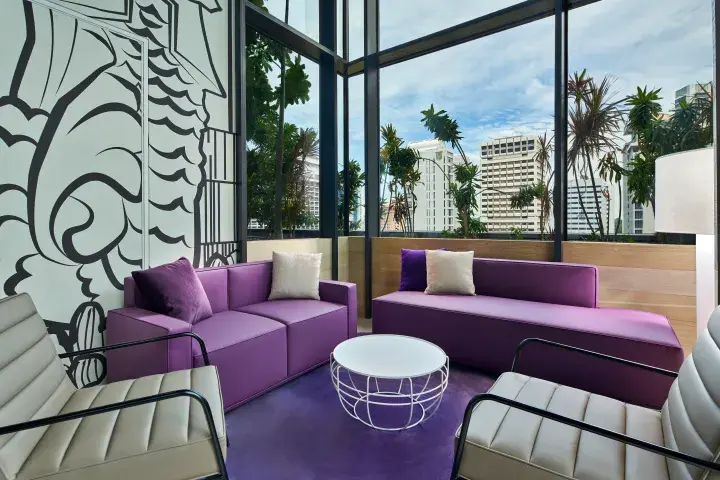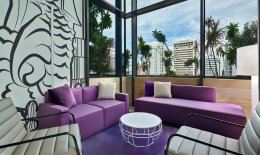If there is one clear and present factor that is changing the way hotels market and operate, it is the Chinese travel market and their growing numbers and one hotel, YOTEL Singapore, is certainly riding on and feeling the effects of that trend.
According to the China Outbound Tourism Research Institute, Chinese outbound travel will increase by 11% this year to 180m travellers and is estimated to reach 260m by 2030. And their behaviours are changing.
What used to comprise of large group tours and packaged travel is evolving with the rise of independent, tech-savvy travellers, keen on uncovering unique, local experiences.
So how should hotels adapt their marketing and services to cater to these new travellers?
Yotel Singapore’s general manager Brendan Daly believes it’s not that complicated. It’s not rocket science, he said. All you have to do is “take the time to look at what you need to do to move your product and brand to align with their behaviours and travel patterns”.
However, speed and being alert is of the essence. “If [brands] want to make change and get better at understanding their customer, they need to open their eyes to it. [If] you look away for a second, it’s changed.”
YOTEL saw the number of its Chinese guests double in the past year, with Indonesian travellers coming second, and he attributed it to the hotel’s “active focus” on the Chinese travel segment, by incorporating features into its infrastructure that directly cater to their immediate needs.
YOTEL’s strategy is to strengthen its brand and reputation amongst Chinese travellers as a preferred place to stay. This comes at a crucial time as the hotel company expands rapidly, with 38 properties opening in the pipeline worldwide.
For the China market, YOTEL established itself as a preferred partner on Ctrip, maintaining an average rating of 4.7 out of 5. It takes payments on WeChat and Alipay so guests can pay in their preferred method with ease.
“Ctrip already has those [payment] facilities, so indirect bookings are covered. But with booking direct, payment technology is a good example of what [companies] need to do” to keep up with the modern-day traveller.
In trying to define its appeal as a hotel, Daly described it as providing “everything [travellers] need and nothing they don’t”.
“It all comes down to what would make their stay seamless so that they don’t have to worry about anything… from language to amenities. We wanted to hit all their base requirements,” said Daly.
Everything is in dual-language – from its menus to its website – local Chinese delicacies are served at the buffet to provide some familiar comforts of home, for example.
It is also focusing on its digital features and cultivating shareable experiences within the property – for example, it is famed for its room-service robots, “smart beds” and check-in kiosks.
“We are not bound or caught by any hospitality traditions… [YOTEL] set out to be in the first place a malleable, tech-driven company and that’s a big part of what we’ve done.”
The company runs by a guiding principle of “CANI” – constant and never ending innovation. “We are not necessarily a new robot or new bed, but more on how do we make customer experience better through challenges we’re facing… we’re focused on things that add value to guests.
“A lot of traditional hotels are caught up in what they are, which slows down their ability to change… [we] punch well above our weight in terms of the players out there because we do things differently.”

